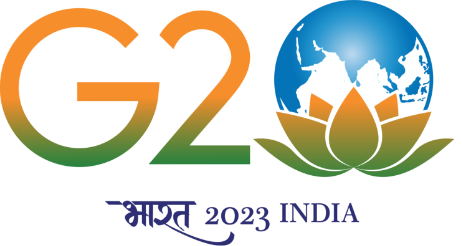G20 declaration: The consensus was good, but more needs to be done

That the New Delhi Declaration has received unanimous approval from G20 leaders, despite earlier concerns that China and Russia might not participate, represents a significant diplomatic accomplishment. Even Congress Party leader Shashi Tharoor acknowledged the relentless diplomatic efforts of India’s G20 sherpa Amitabh Kant, garnering widespread attention. Most notably, the inclusion of the Organization of African Unity (OAU) within the G20 framework holds great significance.
That said, it has become a global practice that, unless a unanimous declaration that satisfies all parties is reached, negotiations are often deemed failures. Consequently, this can stifle creative brainstorming sessions aimed at addressing global concerns. Paradoxically, when declarations aim to please everyone and are hailed as successful, they often lack the transformative potential needed to address the world economy’s numerous challenges. Let this moment of unanimity be embraced with a spirit of generosity, prompting leaders to consider how resources can be effectively channeled to bring about meaningful change.
READ: Biden, Modi vow to transform India-US Strategic Partnership (September 8, 2023)
In the realm of international politics, China emerged as a significant international creditor, providing loans both directly and indirectly through initiatives like the Belt and Road Initiative (BRI). However during this period, neither did Western countries try to reinvent the ailing Bretton Woods system nor put forward a new Marshall Plan for the developing world.
It took the outbreak of a pandemic for the International Monetary Fund (IMF) to undergo a substantial expansion of its Special Drawing Rights (SDRs) in 2021. This development highlights a broader issue: international institutions often remain rooted in the bipolar power dynamics of the mid-twentieth century, which no longer accurately represent the current global landscape. When these institutions are bound by historical paradigms, they can obstruct progress and hinder adaptation to contemporary challenges.
All of this has resulted in the world leaving the serious liquidity concerns of middle- and low-income countries at the mercy of free-market finance. As the IMF, with its own conditions, has become highly unreliable, developing countries have been accumulating significant foreign exchange reserves since the East Asian crisis to protect themselves.
Debt concerns are no longer limited to the least developed countries. Even middle-income countries like Egypt are caught between the Scylla of debt servicing and the Charybdis of rising food and fuel prices. These challenges prevent them from addressing pressing issues related to sustainable development.
While the G20 declaration’s explicit mention of the Black Sea Grain Initiative is laudable, global leadership must also acknowledge the repercussions of El Niño’s impact on food production. This phenomenon has been driving food prices to unprecedented levels, endangering sustainable livelihoods
Beyond the unanimous agreement within the G20 New Delhi declaration, there is a crucial need for a progressive mobilization of global opinion about pressing issues such as rising temperatures, access to essential medicines, and financial support to achieve sustainable development goals.
Following their endorsement of the G20 declaration, the world rightly expects advanced countries to contribute a significant portion, preferably 0.7 percent or even 1 percent of their GDP, to facilitate these necessary changes and ensure the sustainability of life on our planet. Unfortunately, many of these countries, including leading nations, have consistently fallen short of these commitments for decades. It is these commitments that hold far more significance than anything else in creating a world, in line with the Gandhian talisman, where the focus is on everyone’s needs rather than everyone’s greed.
(S. Krishnakumar teaches economics at Sri Venkateswara College, University of Delhi.)
